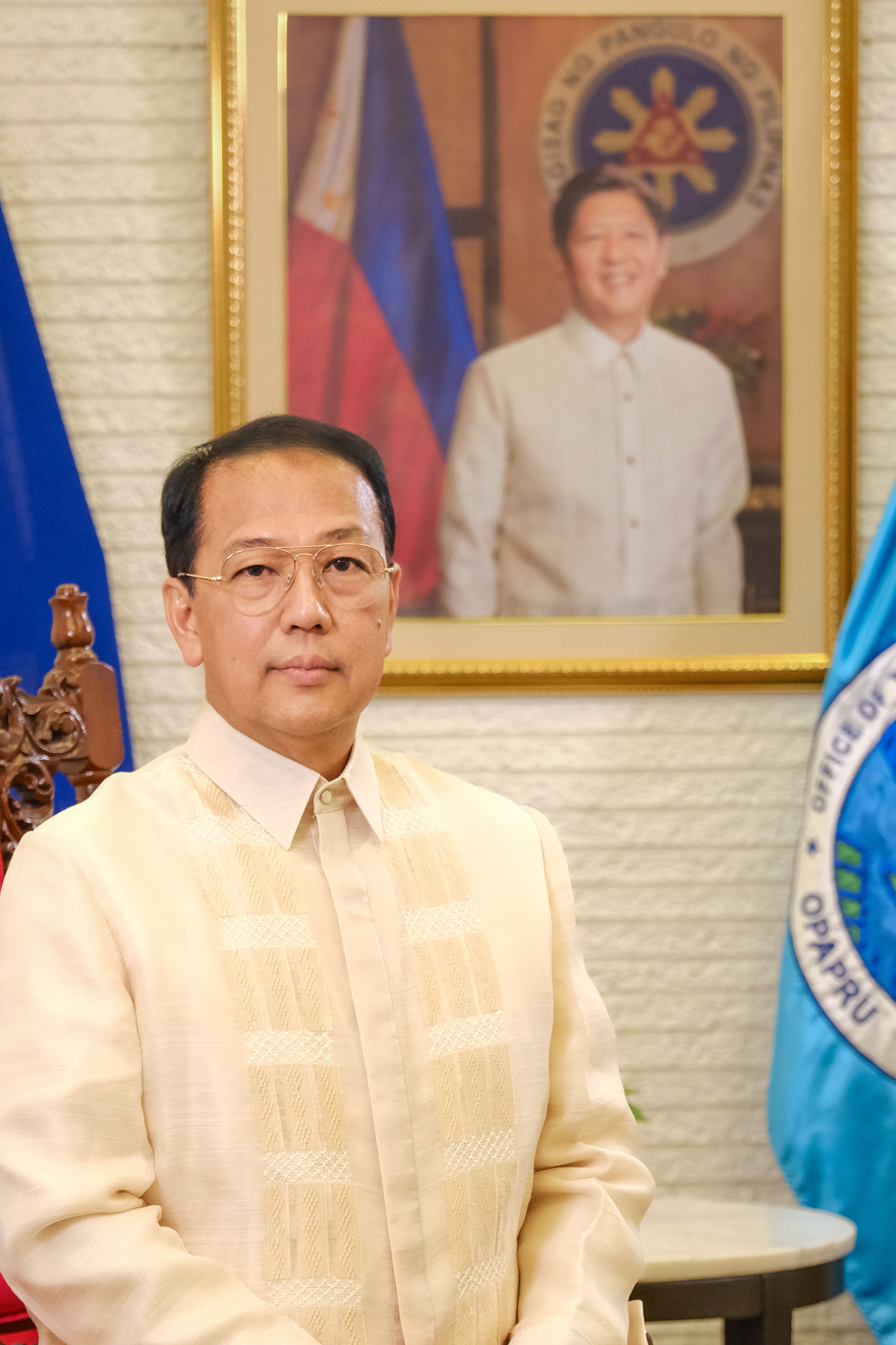GUEST COLUMNIST

By Secretary Carlito G. Galvez, Jr.
During the Vin D’Honneur reception held in Malacañang on June 12, 2024 to commemorate the 126th Philippine Independence Day, the Bangsamoro peace process took center stage.
In his speech, the Most Reverend Archbishop Charles John Brown, Dean of the Diplomatic Corps and Apostolic Nuncio to the Philippines, commended President Ferdinand R. Marcos Jr. for his “noble and honorable aspiration” to push for unity and reconciliation in the country.
He noted that President Marcos Jr’s’ determined efforts to push forward the Bangsamoro peace process to greater heights is a testament of his steadfast commitment to ending decades of conflict and fostering an era of lasting peace and development in the Bangsamoro and throughout Mindanao.
I thank Archbishop Brown for emphasizing that the Philippines’ peaceful resolution to Bangsamoro question can be a template or a model for resolving tensions in an increasingly polarized world.
In particular, the Dean of the Diplomatic Corps lauded the progress made by the Government of the Philippines in implementing the Comprehensive Agreement on the Bangsamoro (CAB) with the Moro Islamic Liberation Front.
The landmark peace deal signed in 2014 finally ended decades of armed conflict in Mindanao, leading to the creation of the Bangsamoro Autonomous Region in Muslim Mindanao.
The Papal Nuncio expressed hope that the CAB would inspire the people of other nations that are currently in the midst of war to take part in open and meaningful dialogue. “Engaging with others, particularly those with whom we profoundly disagree, is the surest way of avoiding the catastrophe of escalation,” he underscored.
His statement could not have come at a more crucial time, as world leaders and mediators are struggling to find ways on how to silence the guns of war.
By doing so, we as responsible nations can collectively prevent further suffering, destruction and bloodshed.
This is a hard and valuable lesson learned by the Philippine government years ago; that the only way to resolve conflict and put an end to the cycle of violence is for both opposing parties to sit across the table, set aside political and ideological differences, and do what matters the most – engage each other in open, honest and respectful dialogue.
In his speech during the 77th United Nations General Assembly in New York held in September 2022, President Marcos highlighted the milestones achieved under the Bangsamoro peace process, describing it as the centerpiece of his administration’s peace efforts.
He proudly declared: “Our success in the Bangsamoro Autonomous Region of Muslim Mindanao in the Southern Philippines is the centerpiece of these efforts.”
The peace that is now being enjoyed after the historic settlement demonstrates that a middle ground can be reached even in the most challenging circumstances. More importantly, peacebuilding must always be done as an inclusive, multi-stakeholder undertaking. Everyone must be involved in the process. No one must be left behind.
The success of the Bangsamoro peace process also underscores the vital role that the international development community has played, and will continue to play in the future.
Foreign governments and donor agencies, as well as international monitoring groups, which include, among others, the Third Party Monitoring Team, Independent Decommissioning Body, International Monitoring Team, Assistance for Security, Peace, Integration, and Recovery for Advancing Human Security in BARMM or ASPIRE Project, World Bank and the Asian Development Bank to name a few, have helped ensure that the peace process held amidst the many challenges in its implementation.
The support coming from the international community has been instrumental in all phases of the peacekeeping, peacemaking, and peacebuilding.
Their efforts to help us began from the ceasefire monitoring and negotiation phase, leading up to the inking of the peace accord and to the implementation of all peace agreements with the MNLF and MILF.
These interventions have been crucial, particularly in the decommissioning process of former MILF combatants and the socioeconomic initiatives that are now transforming them and their families into peaceful and productive members of society. These BARMM communities are now becoming show windows of peace, development and prosperity.
As the BARMM prepares for its first regional parliamentary elections on May 12, 2025, the Papal Nuncio reaffirmed the international community’s strong and unequivocal support. It is, therefore, crucial for all of us to help ensure that the election is peaceful, honest and orderly so that the Bangsamoro people’s vision for their future will be realized.
This is also what we hope to achieve as the government ramps up its peace engagement with former members of the Communist Party of the Philippines-New People’s Army-National Democratic Front of the Philippines through our Local and National Peace Engagement initiatives and Transformation Programs. Just like the Bangsamoro, the struggle now is no longer through the barrel of guns, but through meaningful political participation.
Indeed, President Marcos places a high priority on achieving lasting peace, focusing on policies and a sustainable legacy through continuous peace dialogue, socio-economic reforms, job generation, respect of human dignity, and the promotion of people's right.
I would like to express my deepest gratitude to the President for the trust and confidence for me to join the annual Oslo Peace Forum on June 11-12 and represent the Philippines in the June 15-16 Summit on Peace in Ukraine in Switzerland.
(Secretary Carlito G. Galvez, Jr., is the Presidential Adviser on Peace, Reconciliation and Unity. He advises the President on the implementation of the Philippine Comprehensive Peace Process.)